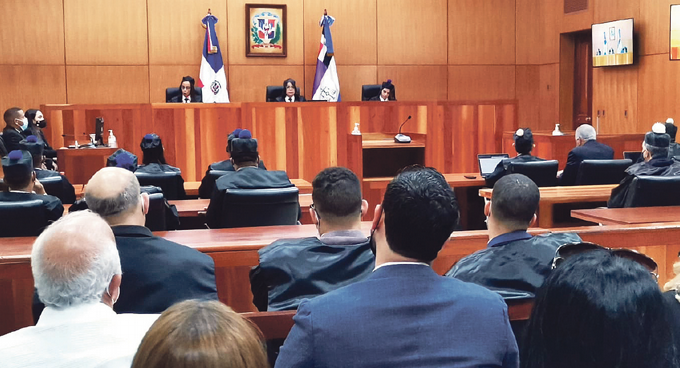They criticize the ruling in the Odebrect case

The ruling regarding the bribes Odebrecht admitted to paying left questions and controversies, but raised little criticism of the decision of the National District First Collegiate Court judges, who convicted two and declared four of the defendants acquitted.
Instead of attacking the ruling, the questions are directed to the file being implemented by the public prosecutor, run by lawyer Jean-Alain Rodriguez, who has been described as weak.
Lack of conclusive evidence, procedural steps and proper investigation due to the failure of the Public Prosecution Office that made it impossible to convict the bribes. These are part of the weaknesses of the Odebrecht file, in the opinion of representatives of the Foundation for Institutions and Justice (Finjus), the Dominican Alliance Against Corruption (Adocco), Citizen Participation, and the Foundation for Justice and Transparency (FJT).
Last Thursday, judges Gisele Mendez, Tania Yunus and Gisele Naranjo sentenced businessman Angel Rondon to eight years in prison for bribes awarded by Odebrecht and Victor Diaz Roa to five years in prison for money laundering from illicit enrichment. While they imposed the acquittal of Andres Bautista, Roberto Rodriguez, Conrado Petaluga and Tommy Gallan.
vulnerability file
Servio Tulio Castaños Guzmán, Vice President of Finjus, indicated that there were steps that were not implemented, so he believes that the ruling came as a result of an incorrect investigation.
He pointed out that there was a period that came out of the investigation 2012-2015, which he believes has not ended.
These are the things that have weakened this record. How can the period from 2012 to 2015 be ruled out when the self-incriminating advertiser said it had been giving bribes from the beginning of its operations here until January 2015.”
He noted that he had warned of weaknesses and stated that criminal proceedings could not be based on theories.
He explained that the public ministry has to change its strategy, as a completely inconsistent file has been drawn up. “This public ministry found it very difficult to bear all of this,” he said.
“These three judges have a good reputation and everyone respects them, even those who do not agree with the decision,” he said.
exclusion by bribery
While the president of the Dominican Alliance Against Corruption (Adocco), Julio Cesar de la Rosa, argued that “the public ministry excluded those who took bribes, if we take the criteria of the court.” He estimates that for there to be bribes, there must be someone to receive them.
He considered that the lack of conclusive evidence from the Prosecutor’s Office resulted in a lack of justice and there were no relevant criminal consequences in the Odebrecht case, where businessman Angel Rondon was not proven to have handed over the bribes. “The Odebrecht case has been eliminated,” de la Rosa said, adding that this is not good for fighting corruption.
know more
procedural failure.
Lady Blanco, Citizen Participation Coordinator, noted that there were procedural failures in putting together the Odebrecht case, leading to the exclusion of essential evidence. “Unfortunately, we have today the outcome of a weak investigation by the attorney general,” he said.
Empty.
Meanwhile, Trajano Potentini, president of the Syndicate of Financial Journalists, stated that the fact that businessman Rondon had been sentenced for bribery and that the bribery did not appear to leave a void.




:quality(85)/cloudfront-us-east-1.images.arcpublishing.com/infobae/P3M34YHXTVFZTCYTQQSSPRA4ZM)